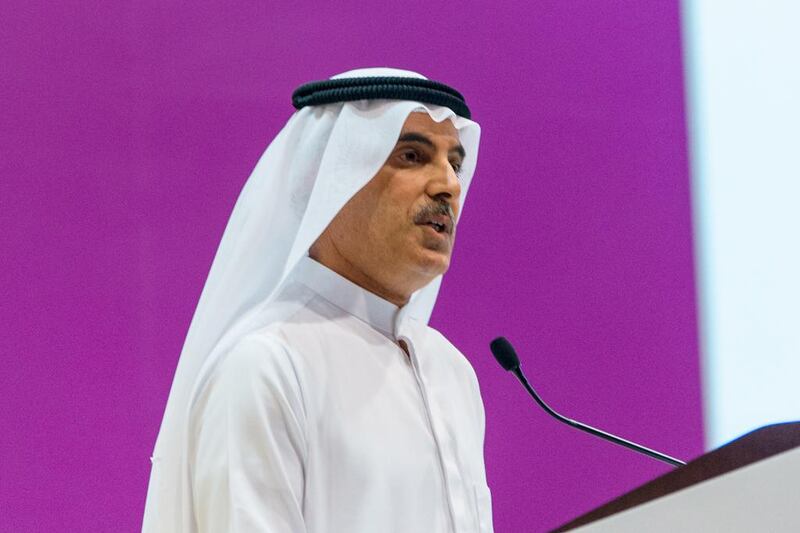The potential fallout from rising levels of bad debt in the small and medium enterprise sector has been contained as banks restructure some of those loans that went sour in the aftermath of the oil price crash, said Abdul Aziz Al Ghurair, the head of the UAE bank federation.
Mr Al Ghurair, who is also the chief executive of the Dubai-based lender Mashreq, last year warned that a number of small business owners may have skipped town, leaving about Dh5 billion of unsettled loans.
“The UAE banking federation has put a framework to work out all the skip customers and this has been a great boost to stabilise our economy, stabilise our SMEs and stabilise the banks,” he said in Dubai yesterday on the sidelines of an event hosted by Family Business Council, of which he is chairman, to launch the region’s first bilingual governance guide for family businesses.
In March, UAE lenders agreed to halt criminal prosecutions for bounced cheques drawn by SME customers under a “rescue initiative” launched by the banking industry.
The scheme allows debtors a 15-day period to agree a restructuring scheme with creditors, followed by up to 90 days in which the banks will refrain from “pre-emptive action”, including prosecution in the courts or travel bans.
At the time, Mr Al Ghurair described the initiative as a “mini-insolvency law”.
Mr Al Ghurair said yesterday the framework “has stopped customers from skipping. Now some of them are volunteering and are saying ‘let me work out a solution’. We’re also getting banks to agree on a framework.”
The banker said, however, that the problems with bad debt among SMEs would probably continue into next year.
According to the results of a survey released earlier this month by the Dubai-based SME financier Gulf Finance, small and medium-sized businesses continued to feel the pinch in the first quarter as the economy slowed, with payment collection and tapping debt remaining difficult. The woes facing small business owners began to appear in earnest last year as the price of oil took a nosedive, losing more than 70 per cent of its value from a peak in mid-2014.
The economic fallout from lower commodity prices has not just affected small businesses, and Mr Al Ghurair said he expected loan growth in the UAE this year to be “flattish”, at about 2 or 3 per cent.
“Part of the loans are tagged to the commodity price,” he said. “If the oil price comes down, if wheat price comes down, my financing these items will come down. We thrive on new activities in the market; projects, new infrastructure, new developments with our neighbours. All that is interlinked and lending to these activities go down if these activities go down. Re-export business has gone down because some of my neighbours have stopped importing.”
Mr Al Ghurair said, however, that the banking system was still flush with cash and there were not any “liquidity” constraints, despite the drop in government deposits amid lower oil prices.
mkassem@thenational.ae
Follow The National's Business section on Twitter





